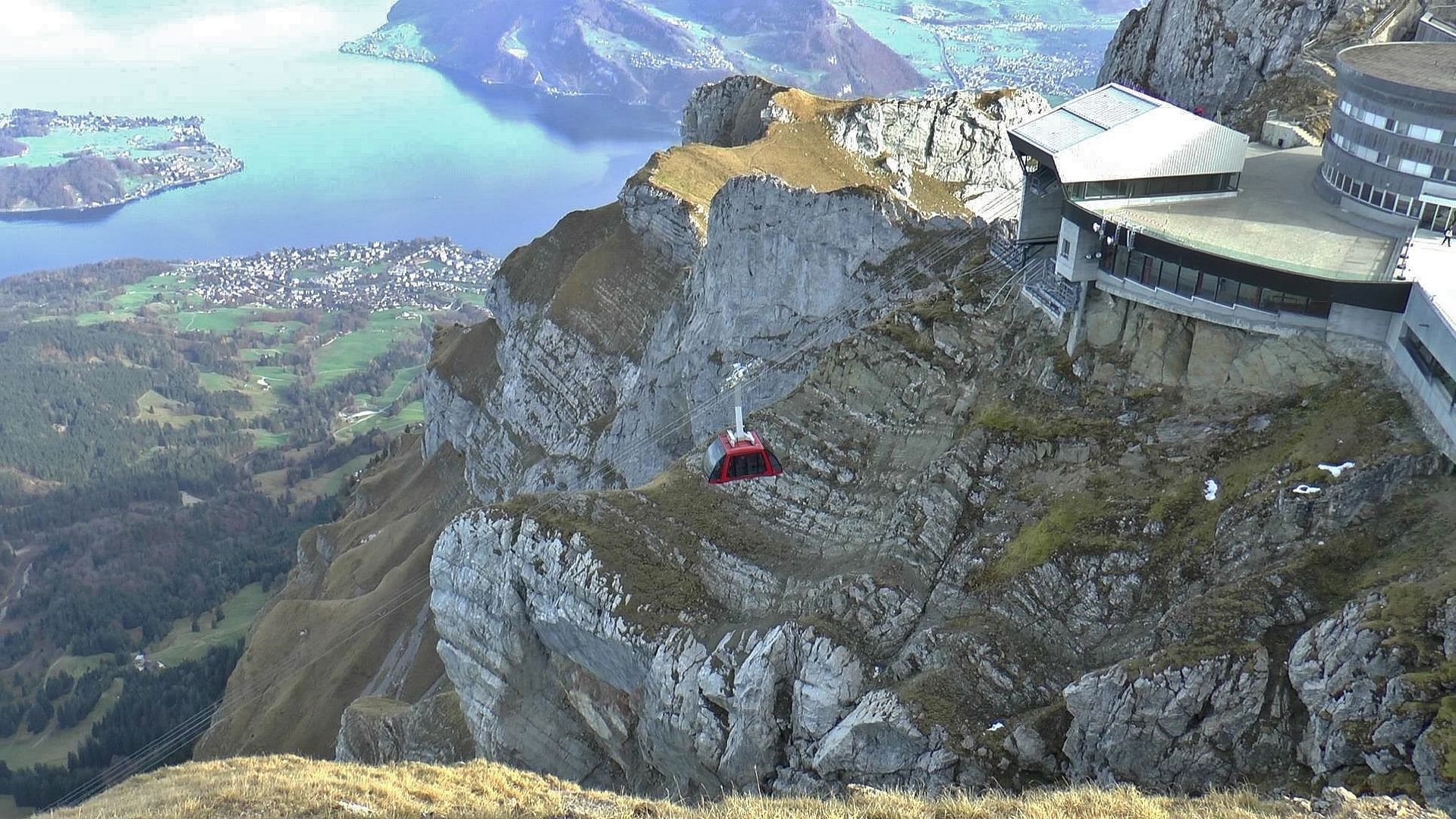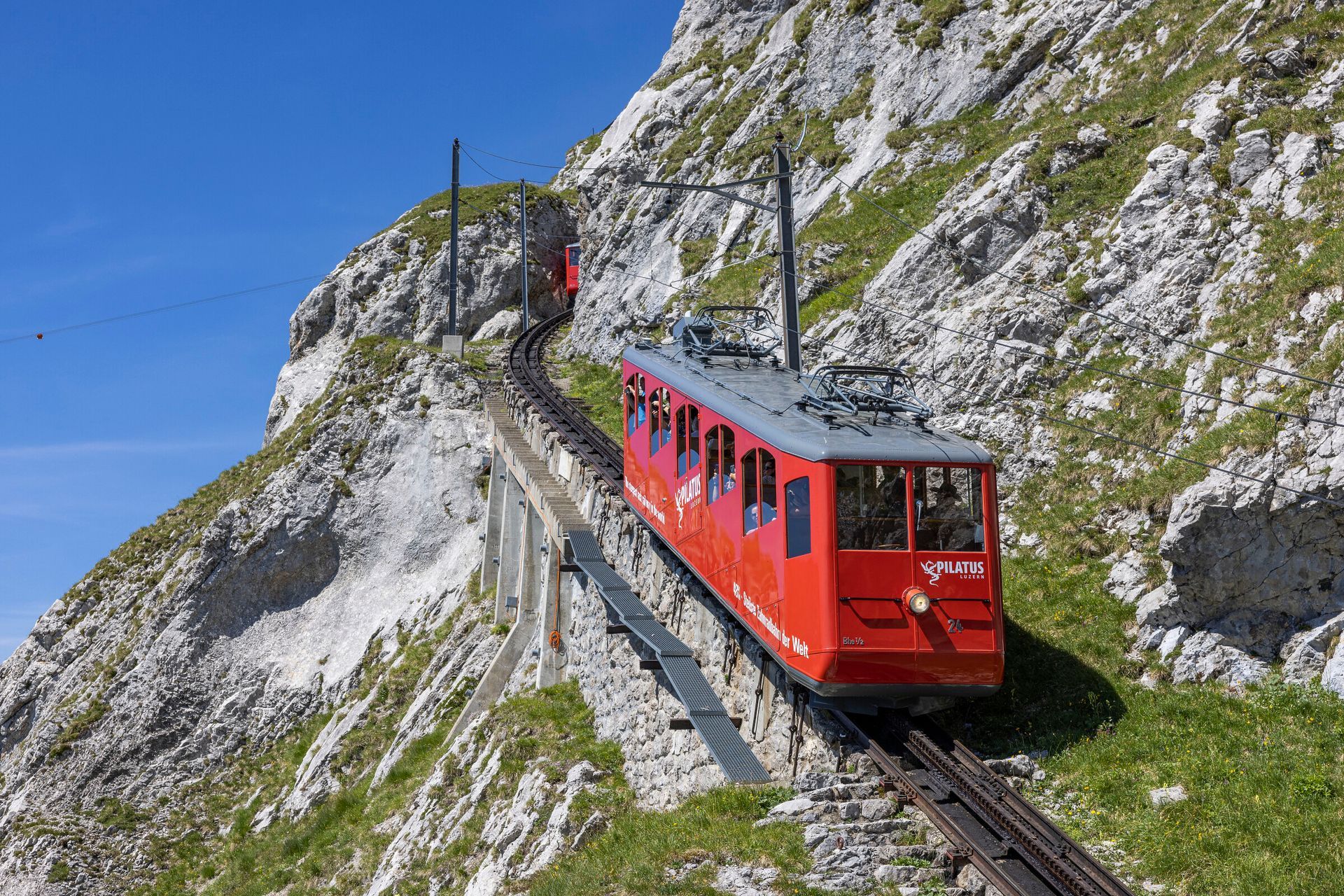Sustainable Travel in Switzerland: See More, Impact Less
Discover how slow, scenic train travel, authentic villages, and local food make for a better Swiss vacation.
Switzerland’s mountains, lakes, and villages are some of the most beautiful in the world, but they’re also vulnerable. As more travelers visit each year, sustainable tourism has become more than a trend, it’s a responsibility.
Luckily, Switzerland makes it easy to travel sustainably. From its world-class public transport to its locally sourced cuisine, it’s possible to explore the country with minimal environmental impact while having a more authentic, memorable experience.
Train Travel: The Best Way to See the Alps
Trains are the most sustainable way to get around Switzerland. Powered largely by hydroelectric energy, the Swiss rail system offers:
- Lower CO₂ emissions than cars or planes
- Quiet, efficient, and scenic travel
- Access to car-free towns like Zermatt and Wengen
With panoramic coaches, comfortable seating, and frequent departures, there's no reason to rent a car. You get to see and do more, with less hassle and impact. It’s a win-win situation!
Authentic Local Stops
Mass tourism in Switzerland tends to follow a narrow circuit: Lucerne, Interlaken, Zermatt. You may find yourself competing with the Instagram crowd just to admire the beautiful scenery these towns are known for.
But locals know the soul of Switzerland is in its lesser-known spots and local connections.
- Disentis is a historic monastery town in the Romansh-speaking Alps, known for its stunning views and as the site of one of the oldest Benedictine monasteries in Switzerland
- Appenzell is synonymous with the most charming Swiss traditions, such as yodeling, cheese, seasonal cattle processions, and traditional dances
- Stein am Rhein, known for its preserved, half-timbered medieval houses with painted facades. It’s easy to make a day tour to visit Stein am Rhein and the magnificent Rhein Falls in nearby Schaffhausen
- Chur is both the oldest city in Switzerland and the cultural center of Graubünden. Winding streets in the car-free old town create an almost Mediterranean flair.
These places are not only more peaceful, but your visit supports small businesses and spreads tourism benefits beyond the hotspots.
Sustainable Food: Eat Like a Local
Food is a huge part of sustainable travel, and Switzerland excels in local, seasonal cuisine.
Skip the inauthentic, overpriced tourist menus. Instead:
- Dine in family-owned restaurants serving Alpine cheese, mountain herbs, rösti, and locally raised meat
- Bring a water bottle and drink fresh mountain spring water from the plentiful fountains around. And don’t forget to try Swiss wines (yes, Switzerland produces excellent regional wines!)
- Buy from farm stands and village markets instead of convenience stores
Local food means a more authentic experience with the benefit of a lower carbon footprint.
Avoiding Crowds: Why Private, Flexible Tours Are Greener
Over-tourism isn't just annoying for travelers and locals, congested towns, polluted roads, and overwhelmed infrastructure strain the very places people come to enjoy.
That’s why small-scale, flexible tours are a better option:
- No big buses or tour groups
- Easier to visit lesser-known places
- More respectful of local communities
- Lower per-person environmental impact
At Hello Switzerland Tours, we prioritize smaller groups, efficient and beautiful routes, and experiences that are off the beaten path.
How Hello Switzerland Tours Supports Responsible Travel
Our approach is built on local knowledge and environmental awareness:
- We use trains and public transport wherever possible
- Our itineraries focus on locally owned restaurants and seasonal highlights
- We help guests avoid tourist traps and overcrowded areas
- We support regions where tourism helps, not harms
You get to enjoy the real Switzerland, without the mass-tourism footprint.
FAQs
How much better are Swiss trains than cars for the environment?
A train journey in Switzerland emits up to
90% less CO₂ per person than driving.
Are local foods really better for the environment?
Yes, shorter supply chains mean fewer emissions. Plus, the ingredients are fresher and more tied to the landscape you're exploring.
Is over-tourism really a problem in Switzerland?
Yes, places like Lucerne, Lauterbrunnen, and Zermatt can become overcrowded, especially in summer. This affects locals and the environment. We aim to relieve pressure by offering alternative routes.
Can I still travel sustainably if I want comfort and luxury?
Absolutely. Private rail travel, slow food, and authentic experiences can be both sustainable and luxurious, it’s about intention, not sacrifice.
Ready to see Switzerland the better way?
Join us for a scenic, sustainable journey that supports the land and people you came to visit.



